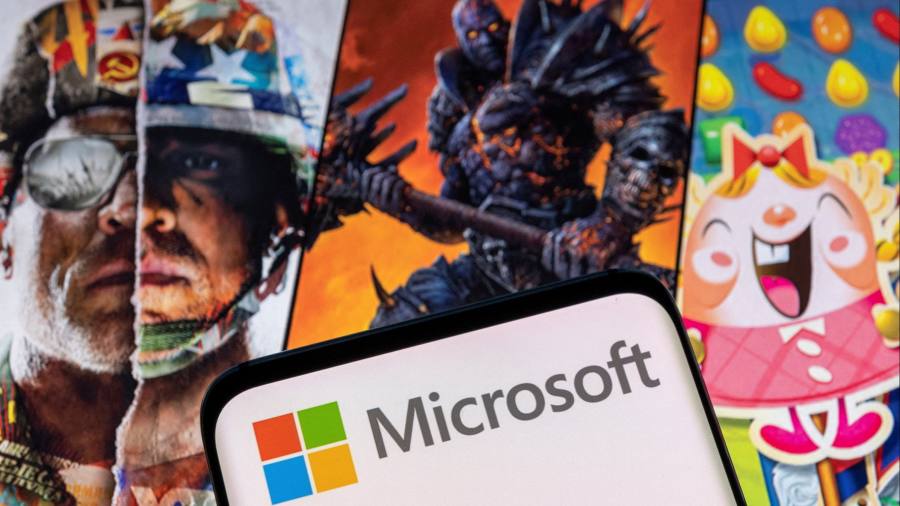The US Federal Trade Commission is expected to seek to block Microsoft’s $75bn acquisition of Activision Blizzard, said a person familiar with the matter, in a move that would pile pressure on the gaming industry’s biggest deal.
The antitrust watchdog last year sued to block the transaction through its own in-house court proceedings, which are set to get under way in August. But it is now expected to file a separate request in federal court, in a move that could prevent Microsoft from closing the deal before a decision is handed down. Challenging a deal is more difficult after it is completed.
The FTC and Activision, maker of the blockbuster game Call of Duty series, declined to comment. Brad Smith, Microsoft’s vice-chair and president, said: “We welcome the opportunity to present our case in federal court. We believe accelerating the legal process in the US will ultimately bring more choice and competition to the market.”
The regulator’s move against Microsoft’s deal is seen as one of the most high-profile challenges brought by Joe Biden’s administration. The president appointed a set of progressive antitrust officials eager to crack down on what they perceive to be anti-competitive conduct in the US economy, among them Lina Khan, the FTC chair.
The UK’s Competition and Markets Authority ruled to block the deal in April, putting the acquisition in serious jeopardy. The CMA argued Microsoft could make Activision’s games exclusive to its own cloud gaming service.
Activision said the CMA’s decision “contradicts the ambitions of the UK to become an attractive country to build technology businesses”. Microsoft’s Smith said his group remained “fully committed to this acquisition and will appeal”.
In a break from the UK and US, the EU last month cleared the acquisition, saying Microsoft assuaged its concerns.
In an interview with the FT in February, Activision chief executive Bobby Kotick complained that “ideologues” who believed “big is bad” were taking over competition authorities.
Activision had been surprised by the FTC’s decision to sue to halt the deal in December, he said, because “nobody would have expected ideology would have gotten in the way of opportunity”.
The FTC’s treatment of the deal had sharpened corporate America’s concerns that Khan is ushering in a more interventionist antitrust policy. Suzanne Clark, chief executive of the US Chamber of Commerce, cited the agency earlier this year as an example of “unprecedented regulatory over-reach”, which she pledged the business lobby would fight in court.
Read the full article here




